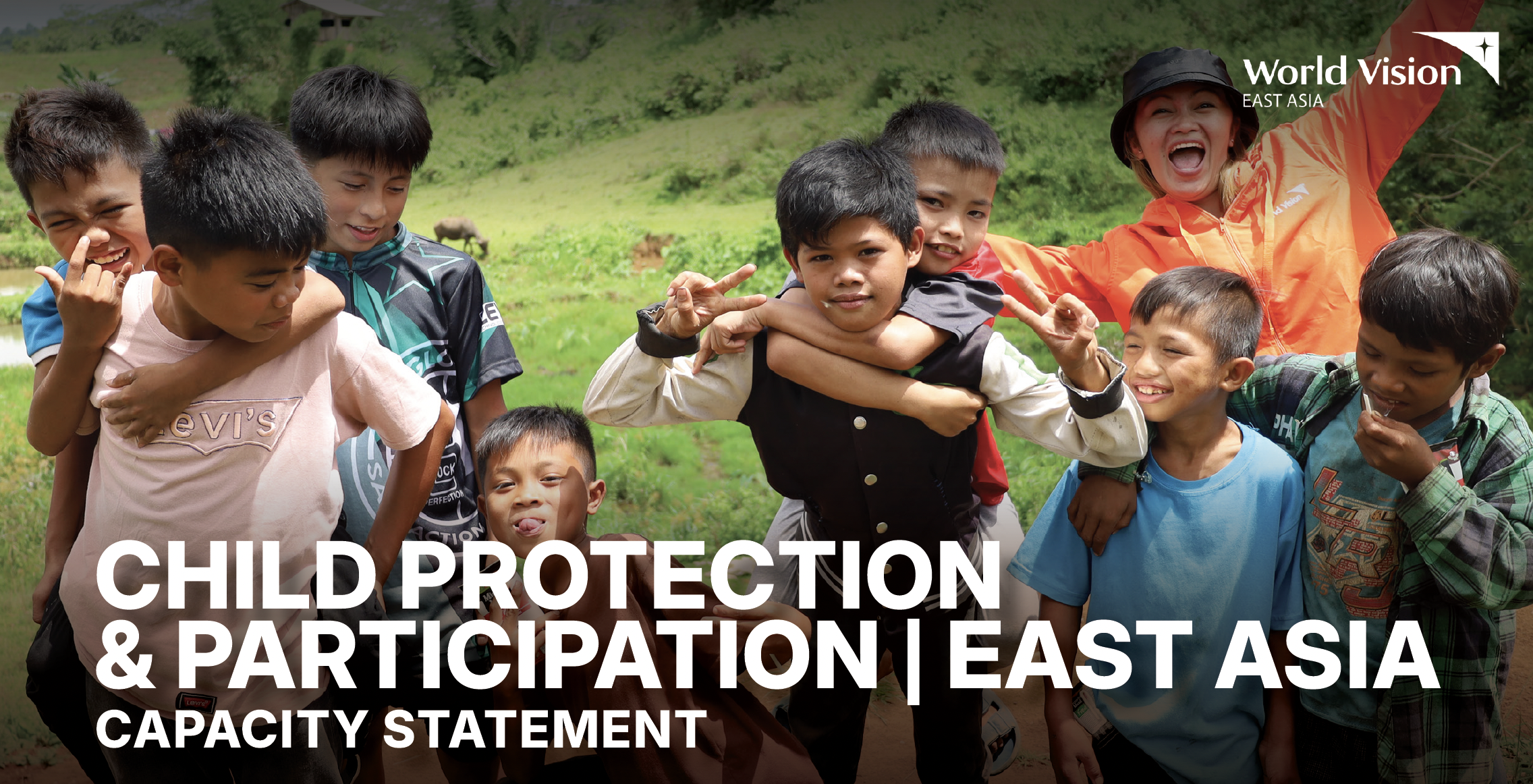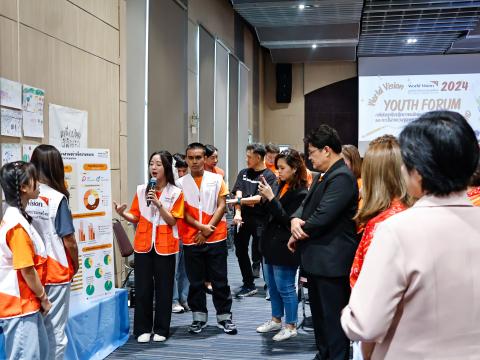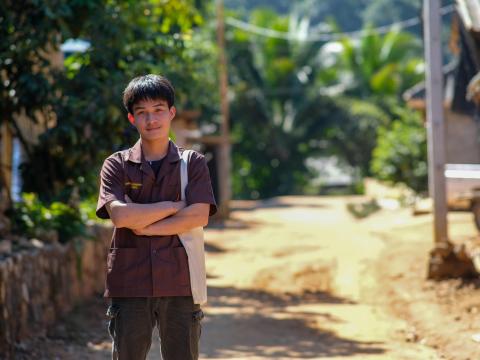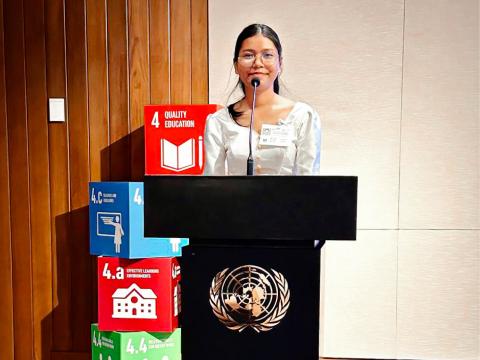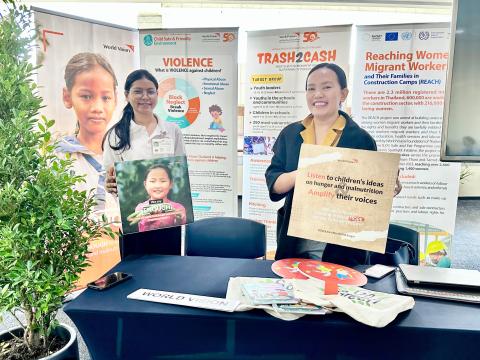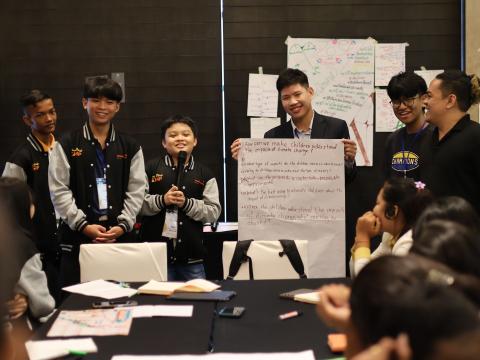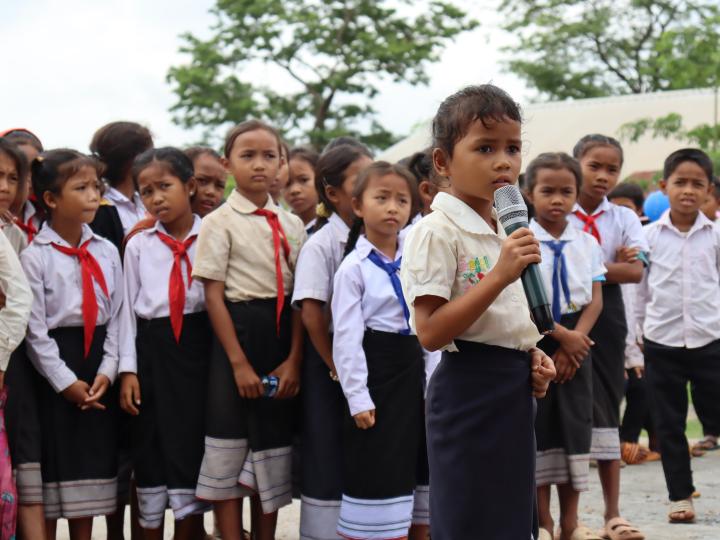Children and youth express opinions, take responsibility and make a difference
Meaningful and safe spaces for children to express, deliberate and influence decisions that affect their lives
Child participation is critical for the successful implementation of a universal sustainable development that leaves no child behind and will accelerate the protection, respect and fulfilment of children’s rights under the UN Convention on the Rights of the Child. Far from being merely recipients of decisions made for them, children should be propelled to the forefront, enabling them to be decisive stakeholders.
Child participation represents more than just a forum for discussion—it’s a beacon of empowerment, validation of children's agency and facilitation of their active role in shaping their future. At World Vision, our commitment lies in nurturing genuine, safe, and impactful child participation. We believe in the transformative potential of young voices and have improved methodologies and ways of working to push the boundaries further, ensuring that every child, regardless of their background or circumstances, has a voice that resonates.
SDGs supported:

Child participation progress in East Asia
In the fiscal year 2023, we witnessed impressive strides in child participation.
Our approach to promoting child participation
Depending on the context, specific issues at hand, and the resources and support available, children can participate at distinct levels: consultative, collaborative, and child-led.
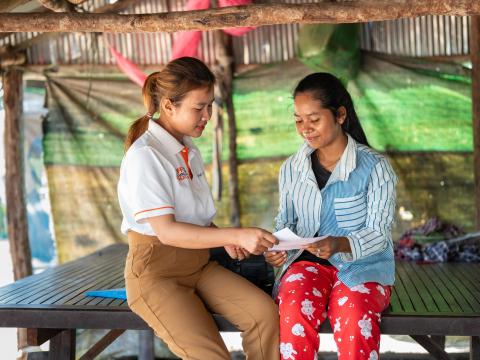
Consultative Participation
Child participation at a consultative level involves actively seeking and integrating the perspectives of children and young people into decision-making, programme design, implementation and evaluation. It is initiated and guided by adults, aiming to incorporate the valuable insights of children and young people into initiatives that affect them. This approach fosters meaningful dialogue and collaboration, empowering children and young people as stakeholders in shaping their environments.
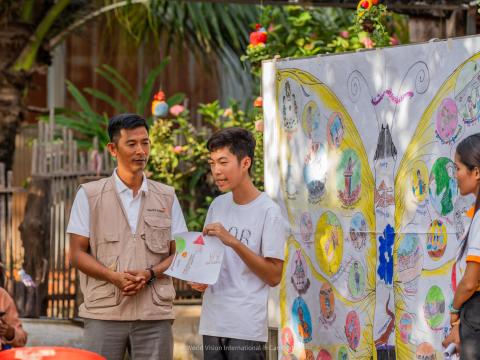
Collaborative Participation
At a collaborative level, children and young people work together with adults as partners to shape initiatives and decisions. While typically initiated by adults, children are involved as equal partners, empowered to contribute and influence outcomes. As children and young people gain experience and confidence, they gradually take on more self-directed roles, fostering a sense of ownership and agency in the collaborative process.
Child-Led Participation
At this participation level, adults empower children to initiate activities and advocate autonomously. Children take charge of identifying relevant issues, orchestrating discussions, and implementing actions, while adults adopt a supportive role as facilitators. Despite children taking the lead, adults maintain readiness to address any child safeguarding concerns that may arise during the activities, ensuring ongoing protection and support for the children involved. World Vision's approach to child-led participation is enriched by child-led mobilisation and child-led research initiatives.
